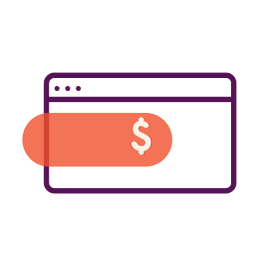Small business loans may require you to use collateral before you can borrow funds. Collateral is a business or personal asset borrowers put down to back up the loan in case of default. So, if you suddenly can’t make your loan payments, the lender can take your collateral to sell and make back some of its losses.
In this article, we explore the benefits of using collateral, which assets you can use for collateral, and how much collateral you’ll need for a secured business loan.
What Are the Benefits of Using Collateral in Your Business Loan?
Collateral may sound intimidating, but in some cases, there are benefits. One example is a secured business loan, which is a loan that requires collateral.
First, small business loans can be the least expensive way to finance a small business. However, it may not be easy to get a bank loan as these lenders often have stricter standards for lending. If you don’t meet these standards, you may still be able to qualify by posting collateral. This may make you appear less risky to lenders and allow you to access lower interest rates. If your personal or business credit scores don’t allow you to get a reasonable interest rate, adding collateral into your loan application may make financial institutions more willing to lower your rates. Finally, you may also be able to borrow more money to fund your business needs and receive more favorable loan payment terms through the use of collateral.
If you’re unable to make payments on your loan (this is called “defaulting”), your lender may decide to take ownership of the collateral that has been pledged to them. The documents that you sign when you get the loan legally allow the lenders to do this. Documentation of the collateralized loan should not take long as lenders use standard documentation. What can take time is the appraisal of the underlying assets. Be sure to discuss this with your lender.
Note: Usually, lenders will not take ownership of collateral when you just miss an interest payment or one or two repayment installments. However, the lender may seize your collateral if they feel that their loan is at risk. Keep this in mind when you’re choosing secured loans to make sure you’ll be able to make the monthly payments. Also, make sure to choose your collateral wisely so it’s not something that would ruin your business if you did default on the loan.
What Are the Different Types of Collateral Acceptable to Business Loan Lenders?
In general, lenders prefer cash as collateral, or collateral that they can easily convert into cash, such as:
- Shares or bonds
- Real estate
- Cars
- Inventory or receivables
Their advance rates against these assets will be higher than against inventory or receivables, which are much harder to convert into cash.
Loan providers will make their own assessment on the value of the collateral, and they often consider the fair market value of an asset less than what the business owner has paid for it. Therefore, it might be wise to have an independent appraiser give you an estimate on the value of your asset prior to going to a lender.
The advance rate is not fixed and fluctuates depending on the asset. We explain below how much you would be able to get for each.
Cash
We have all heard that cash is king, and the same is true with collateral. The best collateral is usually a cash deposit or cash savings from a bank account. Lenders will advance between 95% and 100% on this form of collateral since it is a very low risk for a loan provider. They should be able to give you very favorable terms for a loan based upon cash collateral.
The disadvantage for the business owner is that if a borrower defaults, it is very simple for a lender to take ownership of the cash. Moreover, you will not be able to use this cash as long as it serves as collateral for the loan providers.
Shares or bonds
Investments such as bonds or stock portfolios can also serve as collateral. Usually the advance rate is lower than for cash as the value of shares and bonds fluctuates. This form of collateral is usually only used by large banks since smaller banks may lack the sophistication to value bonds or shares.
Real estate
Probably the most commonly used form of collateral is real estate, either a residence or a commercial building. Advance rates vary greatly depending on the quality of the real estate, location and marketability. Before the recession, loan providers were eager to advance up to 100% of the value of a residence either through a first mortgage and/or a home equity loan. The crash of 2008 and 2009 made clear that the value of real estate can decrease quite rapidly, which resulted in large losses for the lenders.
In general, lenders are much more conservative and will advance up to 70% and 75% of the value through a mortgage. You can increase this advance rate somewhat through home equity loans. The same advance rates basically apply for commercial real estate, although in this segment location is even more important, and loan providers will consider the credit quality of the tenants.
Cars
Cars are a good source for collateral. Credit unions have specialized in lending against cars and offer favorable terms. It is not uncommon that, for people with good credit ratings, a credit union will finance up to 100% of the value of the car at very competitive rates.
Inventory or accounts receivable
Another common form of collateral for small business is inventory and receivables. The advance rates on these assets vary greatly. With respect to receivables, lenders will always exclude receivables older than 90 days and receivables to related parties such as the owner. Average advance rates of the eligible receivables will vary between 60% and 70%. With respect to inventory, lenders are very conservative as they realize that they are usually not able to assess the value. Advance rates are around 50% and 60%, but could be even lower.
How Much Collateral Do Business Lenders Require?
Loan providers typically want small business loans to be fully collateralized. For example, if you are borrowing $100,000, you may need to pledge $100,000 of collateral as appraised by the lender. The only possible exception to this rule may be for clients who have a long-term relationship with lenders and whose businesses has proven to be profitable over a multi-year period.
There is also a relationship between the term of the loan and the underlying collateral. You often have to cover short-term loans (which have terms of less than two years) by inventory, receivables, or cash. For medium-term loans (which are typically two to five years), you’ll usually have to cover them by real estate or cars. Real estate is often the best collateral for a long-term loan (which are more than five years).
Secured Business Loans Available
If you’re searching for a loan that requires collateral, you might not know where to look. Traditional banks and online lenders typically offer loans that need you to put down collateral. So we gathered your best options to help you start your search.
Unsecured Business Loans That Need No Collateral
You may not have collateral to put down on a business loan, or you may prefer to pursue an unsecured loan where you don’t need collateral. These loans typically require higher credit scores but may offer you lower interest rates if you qualify. Here are a few of the best options:
Additionally, business credit cards don’t require putting down collateral. Credit cards can help your small business fill in cash flow gaps as needed and are easier to qualify for than many small business loans. But keep in mind that interest rates may be higher with credit cards.
To find the right business loan or credit card fast, use Nav. Set up a free Nav account with your business details to see your best financing options instantly.
This article was originally written on September 17, 2014 and updated on February 8, 2023.



Have at it! We'd love to hear from you and encourage a lively discussion among our users. Please help us keep our site clean and protect yourself. Refrain from posting overtly promotional content, and avoid disclosing personal information such as bank account or phone numbers.
Reviews Disclosure: The responses below are not provided or commissioned by the credit card, financing and service companies that appear on this site. Responses have not been reviewed, approved or otherwise endorsed by the credit card, financing and service companies and it is not their responsibility to ensure all posts and/or questions are answered.